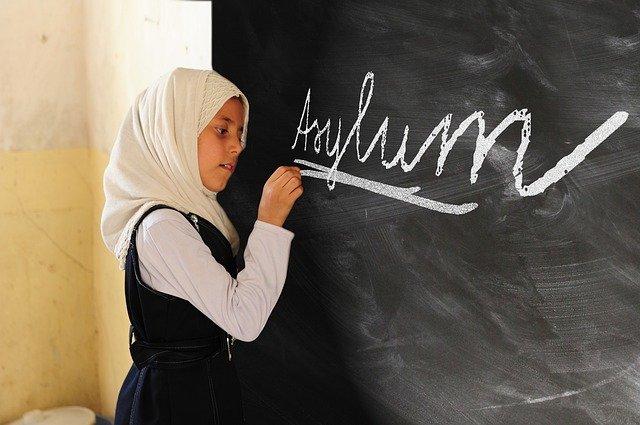Denmark became the first European country to abolish residence permits for Syrian refugees, insisting that parts of the country can already be returned safely. A bill has passed allowing Denmark to relocate refugees arriving on Danish soil to asylum centres in a partner country outside Europe. Obviously, Rwanda will become such a country.
The first batch of 189 refugees has been refused an extension of their temporary residence status since last summer. Danish authorities called the move justified, as the report says the security situation in parts of Syria has “improved significantly”.
Apply for Denmark and end up in Africa
This Thursday, Denmark’s parliament passed a law allowing the country’s authorities to relocate asylum seekers to countries outside Europe. At the same time, the Danes ignore calls from non-governmental organizations and the United Nations to abandon plans to bring the number of asylum seekers to zero.
The bill will allow Denmark to relocate refugees arriving on Danish soil to asylum centres in a partner country outside Europe. Applicants will remain there for the entire period of consideration of their asylum cases. Obviously, Rwanda will become such a country – recently, the Minister of Immigration and Development of Denmark made a secret trip to this country.
“If you are applying for asylum in Denmark, you should know that you will be sent back to a country outside of Europe, and therefore we hope that people will stop seeking asylum in Denmark,” said Rasmus Stocklund, Social Democratic MP and member of the parliamentary committee on immigration and integration of the ruling party.
Charlotte Slente, secretary-general of the Danish Refugee Council, has already said that the new rules for Syrians are tantamount to “maltreatment.”
The Danish Refugee Council disagrees with declaring Damascus or any other area in Syria safe for refugees to return – the lack of fighting in some areas does not mean people can return safely. Neither the UN nor other countries consider Damascus safe, said Slente.
No integration
Meanwhile, the Danish government claims to have made it clear to the Syrians from the outset that they are only offered temporary protection. In addition to revoking residence permits for Syrians, the Danish government has also offered voluntary repatriates funding of around £22,000 per person. However, fearing for their safety, only 137 refugees accepted such an offer in 2020.
Danish authorities have so far rejected growing international criticism of the new policy from the UN and human rights groups.
“The cornerstone of our legislation is that you receive temporary protection, and once you no longer need protection, you will have to leave Denmark,” said Rasmus Storklund. And the Minister of Immigration Matthias Tesfay told Agence France-Presse: “Government policy works, and I will not back down, it will not happen. We have made it clear to Syrian refugees that their residence permits are temporary and that the permit can be revoked if the need for protection disappears.”
Denmark has 5.8 million people, of which 500,000 are immigrants, of whom 35,000 are Syrians.
Denmark was the first country to accede to the UN Refugee Convention in 1951 and, according to the UN, has traditionally been one of the strongest supporters of refugee admission in Europe. But today, the picture has changed.
More than 21,000 asylum seekers arrived in Denmark in 2015. The asylum policy was significantly tightened in the same year, moving away from attempts to integrate refugees and focusing on temporary protection and repatriation. Successive Danish governments have launched aggressive anti-immigration campaigns, including confiscating assets such as jewellery from asylum seekers.
The government has set a “zero target” for the number of refugees, arguing that the money saved can go towards welfare for the country’s citizens.
